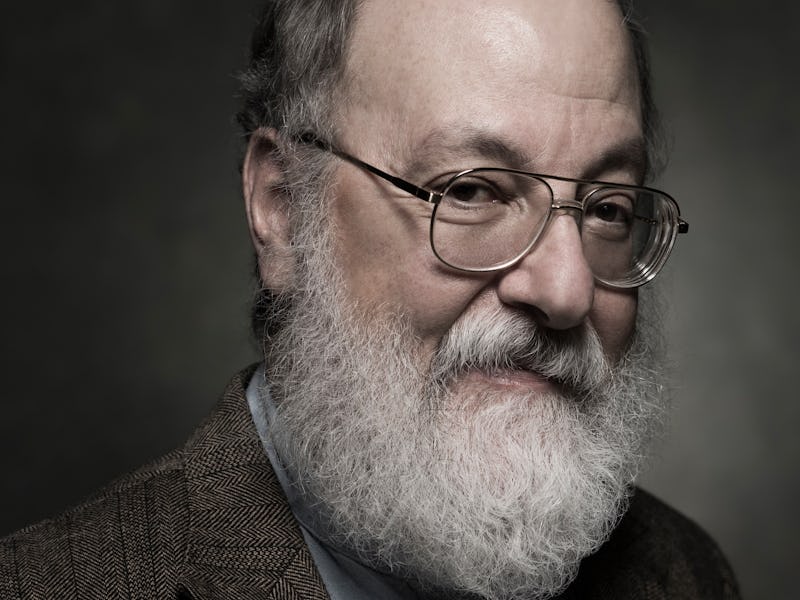ASK A PROPHET | Harry Turtledove Rewrites History
The acclaimed author of 'The Hot War' series talks writing alternate history, his career, and how it all started with Robert E. Lee and an Uzi.

In Ask a Prophet, we use our alien probes on the brains of sci-fi, fantasy, and speculative fiction writers.
This week, we spoke with Harry Turtledove, who has been dubbed “the master of alternate history,” and writes novels exploring scenarios like the survival of the Byzantine Empire or aliens invading in World War II.
What do you think is the key to a good alternate history story?
Alternate history started out as a game that intellectuals played when they were kind of on a lark, and it still kind of retains the idea that it ought to make you think as well as feel.
How do you usually settle on which historical era to play around with for your stories?
It depends on what I’m interested in and what I hope my readers will be interested in. Sometimes it happens by accident. We probably would not be on the phone now if a good friend of mine, Judith Tarr, who was a fine fantasy writer in her own right, hadn’t been complaining about the cover art for a book that she had coming out. She complained that this cover art was as anachronistic as Robert E. Lee holding an Uzi. I looked at that, and I thought, ‘That’s a nice line, Judy.’ And I wrote her back, and at the bottom of the letter after I printed it out I added this hand-scrawled P.S.: “Who’d want to give Robert E. Lee an Uzi? Time-traveling South Africans, maybe? If I write it, I’ll give you an acknowledgement.” And I did write it, and it turned into Guns of the South, and it was the book that let me quit my day job. So I owe Judy big time for that one.
You’ve been credited with bringing alternate history into the mainstream. Have you been surprised by how alternate history has caught on?
I’ve been astonished. I’ve been reading and trying to write science fiction since I was a kid. And because I was a science fiction reader, one of the books I ran across was L. Sprague de Camp’s Lest Darkness Fall, which is kind of a Yankee in King Arthur’s Court kind of story that drops a modern archaeologist back into 6th century A.D. Italy. I started trying to find out how much Sprague was making up. It turned out most of it was real. But because of that, after I flunked out of Cal Tech at the end of my freshman year — I could not do calculus — I ended up with a PhD in Byzantine history. I’m a trained historian who wants to write science fiction, what am I going to do? Write alternate history.
Since you have been in the science fiction genre a long time, how have you seen the genre evolve during your time in it?
There are probably more people making a living at it now then used to be the case, which I think is an excellent thing. The whole impact of the internet, of self-publishing, of self-promotion on Facebook and Twitter and everything — I think we’re all still working out the consequences of all of that and it seems to be much easier to talk about the future than actually to live in it for a lot of people.
Is there a great deal of information that ends up not making it into your work?
Oh, absolutely. You always want to know more than you show in the story. You want to make the reader feel that if she asks you anything about the world that the story is set in that you can go, ‘Of course I know the answer to that.’ The person I think was best at this was J.R.R. Tolkien, who had a world that was thousands of years deep in history and where things that had happened long, long before the time he was writing about kept bubbling up to the surface. You didn’t always know what they meant or what the implications were, but you knew that he knew.
What’s the most challenging part of writing alternate history?
Most of the time you want to make it believable as best you can. You want not to change anything that you aren’t changing on purpose. There are reasons not to do this — if you’re making a particular kind of point, then you can go off the rails and be as implausible as you please. But most of the time you want to stick within shouting distance of things that either did happen or could very easily have happened. That’s what makes The Hot War story so interesting to me, because I grew up in the Cold War, I’m old enough to remember big chunks of it. And thinking that it could have gone wrong, that it nearly did go wrong a couple, three times, and the world would not be a very happy place if it did go wrong, and taking a look at that — that was the attraction of the story for me.